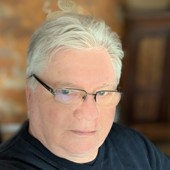Contact
Professor Emeritus, Faculty of Arts - History, Classics, & Religion Dept
- wujastyk@ualberta.ca
- Phone
- (780) 492-3921
- Address
-
2-81 Tory (H.M.) Building
11211 Saskatchewan Drive NWEdmonton ABT6G 2H4
Overview
About
From 2015-2024, Prof. Dominik Wujastyk held the Singhmar Chair in Classical Indian Society and Polity, 500 BCE - 500 CE, at the University of Alberta, where he taught South Asian history. He has conducted historical research on the intellectual and cultural history of classical India, especially the history of indigenous linguistics, science and medicine. He is known for founding the international online forum INDOLOGY that since 1990 has provided an active discussion space for professional scholars of early South Asia.
Degrees
- DPhil (Sanskrit linguistics) Oxford University, 1982
- MA (Sanskrit and Pali) Oxford University, 1978
- BSc (Physics) Imperial College, London, 1974
Interests
- History and culture of pre-modern India
- Sanskrit language and literature
- Indian knowledge systems: āyurveda (medicine), yoga, vyākaraṇa (linguistics), manuscript studies, Indian textual criticism and editorial technique,
- History of science in South Asia
Editorial work
In addition to serving on several editorial boards, I am a founding editor of two book series,
- The Sir Henry Wellcome Asian Series (Brill, Leiden)
- Indian Medical Tradition (MLBD, Delhi)
and the founding editor of the journal
Research
In Asian Studies, my early training was in the Sanskrit, Pali and Prakrit languages, and my first research project was on formal rule-conflicts in Indian linguistics (the generative Sanskrit grammar by Panini). Later, I moved to teach and research in the history of medicine in India and South Asia, and this has remained an active research area for me. I have also researched the history of classical Yoga in India, and that has immediately connected with aspects of early Indian Buddhism, out of which Yoga arose.
I am working on a book that presents the history of classical Indian medicine through a series of commented translations that illustrate how ideas changed through time. This will be published in a series at Columbia UP called "Historical Sourcebooks in Classical Indian Thought." Other writing projects include a book on the history of Yoga Asanas, co-authored with Philipp Maas (Leipzig), a study of debate and disagreement in the tradition of scholarly Indian medicine, and a work on the intellectual history of traditional Indian physicians in the two centuries preceding colonialism. A book on part of the surgical material in the Compendium of Suśruta (Suśrutasaṃhitā), arising out of the SSHRC-funded Sushruta Project, was published in 2023 (DOI). In 2025, the SSHRC funded continued research into the history of the Compendium of Suśruta (project website). A secondary project explores an early Sanskrit treatise on alchemy called the Good Fortune of the King of Mercury (Rasendramaṅgala), by the author Nāgārjuna Siddha (website).
If there's a golden thread through my research interests it is the study of Sanskrit literature and its source materials in their original languages, mainly Sanskrit and Pali.
Teaching
Fields of Graduate Supervision (2022: I am no longer accepting new students)
- Ancient Indian history
- History of medicine and science in India
- Sanskrit grammatical tradition (व्याकरणम् )
- History of Indian Buddhism
- History of Ayurveda
- History of Yoga
I run a graduate research seminar each semester for reading Sanskrit literature and exploring topics in philology.
Undergraduate
I teach several undergraduate courses annually, including "Introduction to Classical India," "History of Indian Yoga and Meditation," "History of Science in Early India," and "Topics in the History of Medicine: Ayurveda: The Science of Life in Ancient India."
Announcements
See the University of Alberta website for South Asian Studies: http://sas.ualberta.ca
Scholarly Activities
Research - The Suśruta Project: The textual and cultural history of medicine in South Asia based on newly-discovered manuscript evidence
1 April 2020 to 31 March 2024
In January 2007, the Nepal-German Manuscript Cataloguing Project announced the discovery of a palm-leaf manuscript of The Compendium of Sushruta that is reliably datable to 876 CE. The Compendium is a foundational treatise of classical Indian medicine written in Sanskrit about two thousand years ago. This manuscript pushes our physical evidence for the treatise back by a millennium and revels a much earlier stage of the work’s textual development. This SSHRC-funded project explores the history of medicine in South Asia in the context of this new evidence.
The Sushruta ProjectOther - History of Science in South Asia journal
I am the founding editor of this new international journal.
HSSAOther - Sir Henry Wellcome Asian Series - a book series
I am a founding editor, with Profs. Paul Unschuld and Lawrence I. Conrad, of a book series published with Brill, Leiden. The series publishes volumes on the history of science and medicine in Asia.
Publisher's website for the SHWASOther - Traditional Indian Medicine
I am a founding editor, with Prof. K. G. Zysk. The series is published in Delhi by Motilal Banarsidass.
Publisher's websiteFeatured Publications
Dominik Wujastyk et al.
Heidelberg. 2023 June; 10.11588/hasp.1203
Dominik Wujastyk
Hoboken, NJ. 2022 June; 10.1002/9781119144892.ch23
Dominik Wujastyk
History of Science in South Asia. 2022 February; 10 10.18732/hssa70
Dominik Wujastyk
Leiden, Boston. 2021 January; Body and Cosmos. Studies in Early Indian Medical and Astral Sciences in Honor of Kenneth G. Zysk
Dominik Wujastyk
Studia Orientalia Electronica. 2018 January; 6
Dominik Wujastyk
Göttingen. 2018 January; Yoga in Transformation: Historical and Contemporary Perspectives, ed. Karl Baier et al.
Dominik Wujastyk
2017 January;
Dominik Wujastyk
Asian Literature and Translation. 2017 January; 4 (1):159-86
Dominik Wujastyk
Delhi. 2017 January;
Dominik Wujastyk, Karin Preisendanz, Anthony Cerulli
2013 January;
Dominik Wujastyk
2003 January;
Dominik Wujastyk
Indian Journal of History of Science. 54 (1):679-690
Kim Plofker, Agathe Keller, Takao Hayashi,Clemency Montelle, Dominik Wujastyk
History of Science in South Asia. 5 (1):134-50
View additional publications
